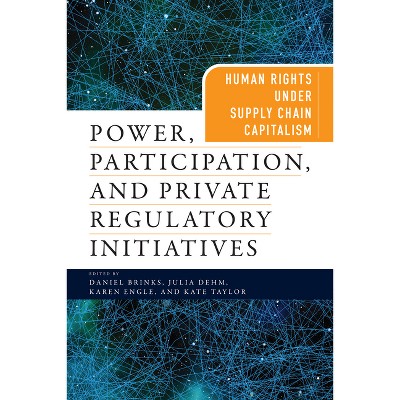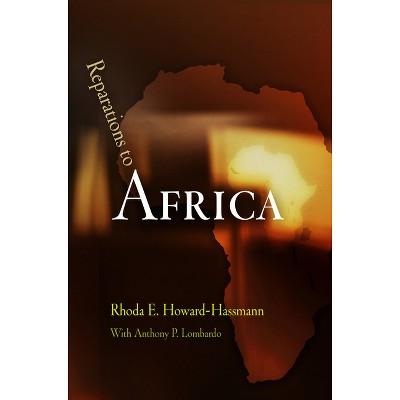Searching for Normal in the Wake of the Liberian War - (Pennsylvania Studies in Human Rights) by Sharon Alane Abramowitz (Hardcover)

About this item
Highlights
- At the end of Liberia's thirteen-year civil war, the devastated population struggled to rebuild their country and come to terms with their experiences of violence.
- About the Author: Sharon Alane Abramowitz teaches anthropology and African studies at the University of Florida.
- 280 Pages
- Political Science, Human Rights
- Series Name: Pennsylvania Studies in Human Rights
Description
About the Book
Sharon Alane Abramowitz examine how humanitarian healthcare dealt with mental health and psychiatry during Liberia's turbulent postwar transition, looking closely at the ways mental health and psychosocial interventions worked to manage trauma and produce postwar peace.
Book Synopsis
At the end of Liberia's thirteen-year civil war, the devastated population struggled to rebuild their country and come to terms with their experiences of violence. During the first decade of postwar reconstruction, hundreds of humanitarian organizations created programs that were intended to heal trauma, prevent gendered violence, rehabilitate former soldiers, and provide psychosocial care to the transitioning populace. But the implementation of these programs was not always suited to the specific mental health needs of the population or easily reconciled with the broader aims of reconstruction and humanitarian peacekeeping, and psychiatric treatment was sometimes ignored or unevenly integrated into postconflict humanitarian health care delivery.
Searching for Normal in the Wake of the Liberian War explores the human experience of the massive apparatus of trauma-healing and psychosocial interventions during the first five years of postwar reconstruction. Sharon Alane Abramowitz draws on extensive fieldwork among the government officials, humanitarian leaders, and an often-overlooked population of Liberian NGO employees to examine the structure and impact of the mental health care interventions, in particular the ways they were promised to work with peacekeeping and reconstruction, and how the reach and effectiveness of these promises can be measured. From this courageous ethnography emerges a geography of trauma and the ways it shapes the lives of those who give and receive care in postwar Liberia.Review Quotes
"A significant contribution to the literature on postwar West Africa as well as to the growing literature on mental health in medical anthropology."-- "Danny Hoffman, University of Washington"
About the Author
Sharon Alane Abramowitz teaches anthropology and African studies at the University of Florida.










